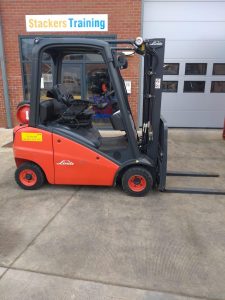The UKMHA (UK Material Handling Association) has issued a warning that fork lift truck operators should not over-crank the starter if they are struggling to start up their LPG-powered lift trucks. Repeated starting attempts can present a fire risk.
Whilst investigations into the root cause are ongoing, UKMHA has given specific advice on what to do if the engine of an LPG truck does not start within the normal few seconds.
Click on the link below to read their safety alert:
Also, we have been advised by Linde Material Handling that there have been problems starting LPG trucks in Europe due to the quality of liquid gas that deviates from the usual composition. The problem can often be attributed to individual gas supplies and is regionally limited. Companies whose trucks are affected by these starting problems should therefore contact their LPG suppliers regarding a possible change in gas quality.
The undesirable residues in the gas can lead to a failure of the control function of the evaporator. As a result the gas-air mixture is too rich and starting the engine is not possible. A repeated start attempt can lead to the escape of unburned liquid gas and thus to the formation of an explosive gas-air mixture, especially in the engine compartment, but also in the immediate vicinity of the truck (radius approximately 3 metres).
For this reason, contrary to the instructions in the operating manual, no further starting attempts must be made on affected trucks if the engine does not start at the first start attempt within the first few seconds. Under no circumstances may the starting procedure be repeated if the truck does not start within this period.
In such case:
- The truck must be secured against further starting attempts.
- The shut off valve on the gas bottle/tank must be closed.
- The authorised service partner must be notified and requested to check the LPG system of the truck and repair if necessary.
Linde Material Handling are investigating the issue with urgency and we will pass on further updates as soon as we receive them.

